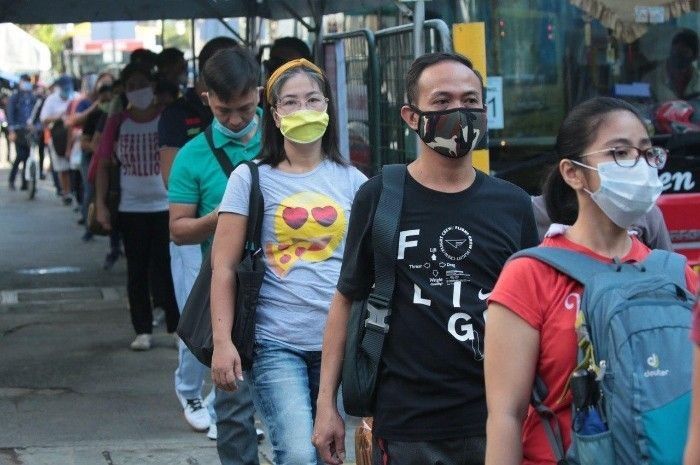Public urged to demand transparency from ‘kalye surveys’

MANILA, Philippines (Updated February 22, 2024, 5:31 p.m.) — A statement by the University of the Philippines School of Statistics warning against the proliferation of surveys with dubious methods is circulating again on social media amid what appears to be an increased production of "kalye survey" videos by hyperpartisan content creators about recent political issues.
In a statement written ahead of the 2022 national elections, the UP STAT faculty cautioned the public to be critical of social media personalities “doing their own brand of research," including those conducting “kalye surveys” or man-on-the-street-style surveys and other “suspicious online surveys."
The statement was reshared on Facebook on Wednesday by Commission on Higher Education Chairperson Popoy De Vera and has reached over 300 shares as of posting.
Surveys with unclear methodologies are a “cavalier disregard for the principles of data gathering,” the UP STAT faculty said in their statement.
“We also witness PR companies, private individuals, and even some media organizations publishing results of surveys with unclear methodologies,” the faculty added.
The UP STAT faculty encouraged the public to be critical of surveys and scrutinize the appropriateness of their sampling techniques, saying that the public should “not immediately accept survey results as they are.”
“Data collection processes may also generate bias, such as when an interviewer purposely affects the answers of the respondents,” the statement read.
The UP STAT faculty also underscored the importance of looking at the timing and context of a survey, who is being asked to participate, the demeanor of the person asking questions and the “control mechanisms implemented to ensure accuracy of the protocols in data collection.”
Based on Philstar.com's monitoring, several YouTube videos showing man-on-the-street style surveys this month have aimed to show public opinion about the Marcos administration in comparison to former President Rodrigo Duterte. A closer look at the YouTube accounts uploading these shows that they have other content that appears hyperpartisan or sensationalized.
There are also several "kalye survey" videos about the Mindanao secession on YouTube.
Kalye surveys became more prominent in the lead-up to the 2022 national elections when several YouTube content creators produced videos of people on the streets stating their preferred choice for president or vice president.
These differ from large-scale mainstream surveys typically conducted by pollsters like SWS and Pulse Asia, which publicly state their methodologies and conduct random sampling to avoid bias.
While survey findings — especially those that strictly adhere to scientific methods — have been used to support policymaking or scrutinize public opinion of government officials, several studies have also cautioned against interpreting these as fool-proof.
In a 2023 study published in the Journal of East Asian Studies, researchers who conducted list experiment surveys found that former President Rodrigo Duterte's popularity among survey respondents during the pandemic was inflated due to external factors, with about one-third of Duterte’s approval rating stemming from social desirability bias (saying something not truthful in a survey).
Specifically, researchers Yuko Kasuya and Hirofumi Miwa found that from late February to early March 2021, a period marked by COVID-19 lockdowns, people were more likely to answer that they support Duterte if they were socioeconomically vulnerable, a Mindanaoan, or had neighbors who appeared to support the president.
- Latest
- Trending






























